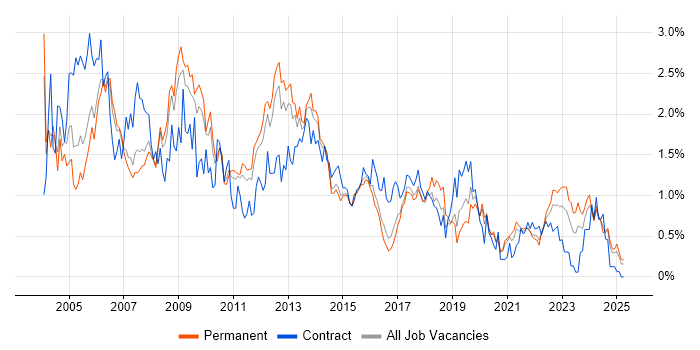Database Administrator
West Midlands > Birmingham
The median Database Administrator salary in Birmingham is £65,000 per year, according to job vacancies posted during the 6 months leading to 13 January 2026.
The table below compares current salary benchmarking and summary statistics with the previous two years.
|
|
6 months to
13 Jan 2026 |
Same period 2025 |
Same period 2024 |
| Rank |
100 |
129 |
93 |
| Rank change year-on-year |
+29 |
-36 |
+30 |
| Permanent jobs requiring a DBA |
5 |
4 |
13 |
| As % of all permanent jobs in Birmingham |
0.29% |
0.22% |
0.95% |
| As % of the Job Titles category |
0.31% |
0.23% |
1.00% |
| Number of salaries quoted |
3 |
4 |
12 |
| 10th Percentile |
- |
£53,087 |
- |
| 25th Percentile |
- |
£55,924 |
£47,500 |
| Median annual salary (50th Percentile) |
£65,000 |
£60,000 |
£52,500 |
| Median % change year-on-year |
+8.33% |
+14.29% |
+5.00% |
| 75th Percentile |
- |
£62,813 |
£59,375 |
| 90th Percentile |
- |
£63,375 |
£62,375 |
| West Midlands median annual salary |
£45,000 |
£60,000 |
£50,000 |
| % change year-on-year |
-25.00% |
+20.00% |
- |
For comparison with the information above, the following table provides summary statistics for all permanent IT job vacancies in Birmingham. Most job vacancies include a discernible job title that can be normalized. As such, the figures in the second row provide an indication of the number of permanent jobs in our overall sample.
| Permanent vacancies in Birmingham with a recognized job title |
1,614 |
1,703 |
1,303 |
| % of permanent jobs with a recognized job title |
93.19% |
94.66% |
95.67% |
| Number of salaries quoted |
1,172 |
833 |
1,110 |
| 10th Percentile |
£30,000 |
£37,500 |
£31,000 |
| 25th Percentile |
£40,872 |
£43,500 |
£41,250 |
| Median annual salary (50th Percentile) |
£57,500 |
£57,500 |
£55,000 |
| Median % change year-on-year |
- |
+4.55% |
-2.62% |
| 75th Percentile |
£70,000 |
£72,500 |
£67,500 |
| 90th Percentile |
£84,375 |
£87,500 |
£80,044 |
| West Midlands median annual salary |
£50,000 |
£52,500 |
£49,000 |
| % change year-on-year |
-4.76% |
+7.14% |
-6.67% |


